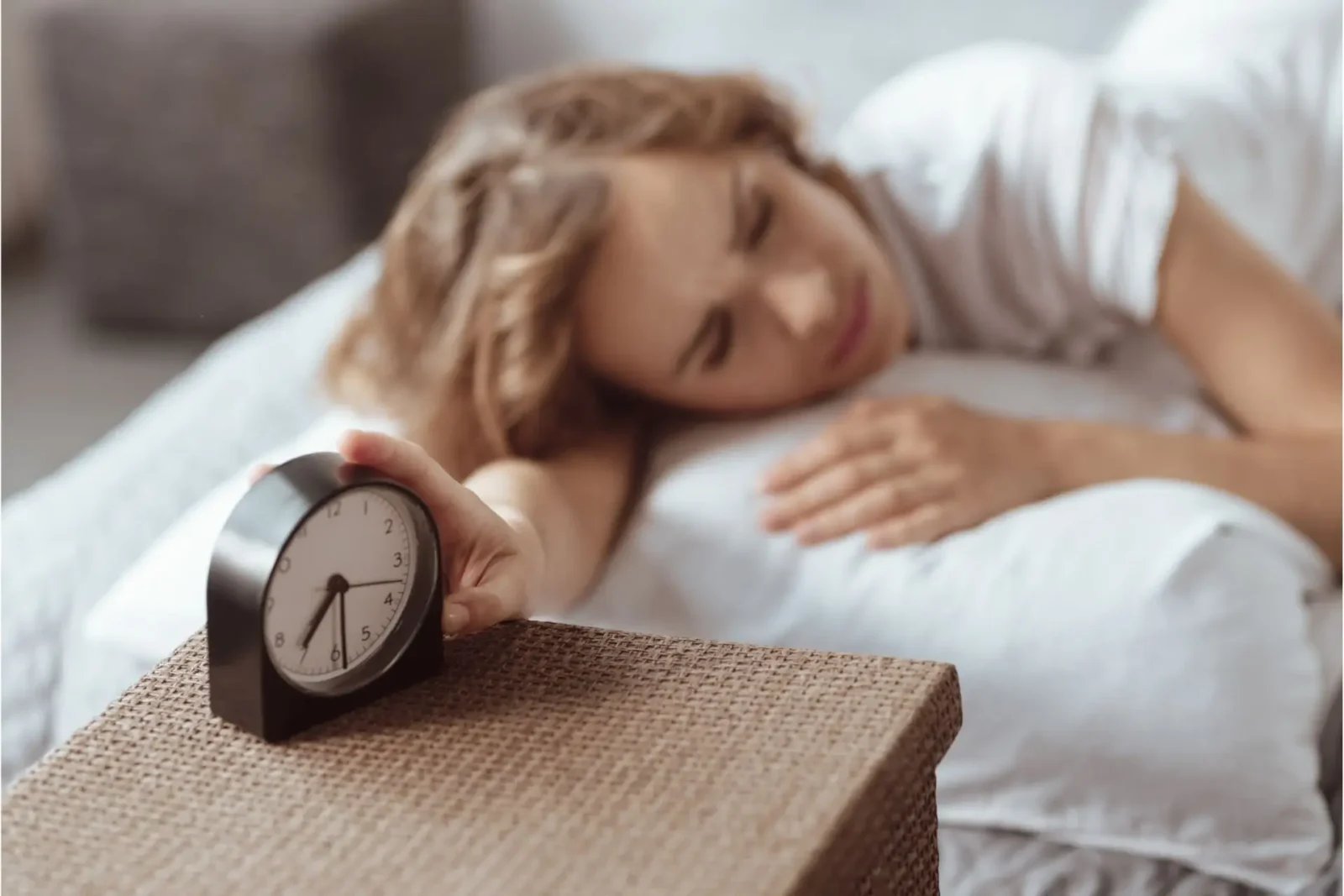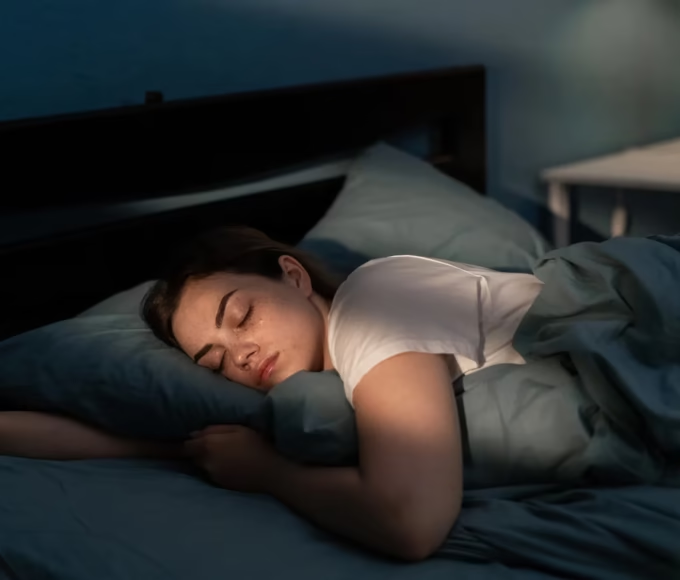Early rising has become a modern productivity badge, with celebrities and entrepreneurs touting 5 AM as the golden hour to get ahead. But “rise and grind” culture clashes with what sleep science, circadian biology, and mental health research actually say about rest, resilience, and long-term performance. For millions, setting an alarm for 5 AM is either health-neutral or actively harmful—especially if it comes at the cost of sleep duration, sleep quality, or natural body clocks.
Below, we’ll break down the evidence, expose the myths, and help you determine whether a 5 AM wake-up time is helping or hurting your health.
The Science of Sleep: What Happens in the Early Morning?
What is a healthy sleep cycle?
Sleep is not uniform across the night. You move through stages, including light (N1, N2), deep (N3/slow-wave), and REM (dream) sleep. These cycles repeat every ≈90 minutes, but later, longer REM-rich cycles are concentrated in the second half of the night.
Waking at 5 AM—unless you go to sleep very early— means:
- Cutting off the longest REM period.
- Losing time for brain “clean-up” (neurotoxin removal).
- Weakening emotional regulation, memory consolidation, and problem-solving.
What is your circadian rhythm and chronotype?
Your circadian rhythm is an internal 24-hour “clock” that controls sleep, hormones, mood, hunger, and core body temperature. Genetics dictate a person’s chronotype—have you always found mornings painful and late evenings productive? You may be a true night owl.
- Early birds: Naturally alert and productive in mornings; benefit most from an early wake time.
- Night owls: Out of sync at dawn, with peak energy later; forced early waking creates a chronic mismatch.
- Most people: In between, but “social jetlag” (shifting schedules for work/school) drags performance down.
Common Health Risks of 5 AM Wake-Ups
1. Sleep deprivation and cumulative sleep debt
The most direct risk: not getting enough total sleep. The majority of working-age adults need 7–9 hours per night. Most don’t go to bed early enough to make a 5 AM wakeup compatible with those numbers.
Short-term impacts:
- Daytime sleepiness, impaired memory, reduced alertness.
- Lowered immune function—more colds, viruses, and slower recovery.
Longer-term risks:
- Increased risk of heart disease, hypertension, obesity, and diabetes.
- Higher rates of anxiety, depression, and burnout.
When you routinely wake at 5 AM but aren’t hungry for bed at 9 PM, you accumulate sleep debt—wear and tear that doesn’t go away after one catch-up nap.
2. Loss of REM and deep sleep
- Slicing off early-morning hours means REM and, for late-nighters, deep sleep are cut short.
- REM loss impairs memory, emotional stability, and creativity.
- Inadequate deep sleep leaves you less physically restored: sore, mentally dull, and more easily stressed.
3. Misalignment with your biological clock (circadian “mismatch”)
Forcing a 5 AM alarm on an incompatible chronotype triggers “social jetlag”—a misalignment of biological and social time that feels like ongoing jetlag.
Signs include:
- Constant fatigue, brain fog, and poor motivation in the morning.
- Heightened hunger (metabolic disruption).
- Mood swings or irritability throughout the day.
Night owls suffer most: performance and wellbeing drop when they miss their natural sleep window.
4. Higher cortisol and stress
Cortisol, the “stress hormone,” surges early in the morning to wake you up. If you rise before your body’s natural cortisol peak (usually 6–8 AM), you may feel groggy, stressed, or anxious.
Long-term elevation, or waking before this cycle, is linked to:
- Chronic anxiety and mood disturbance.
- Disrupted blood sugar and increased inflammation.
- Higher cardiovascular risk.
5. Mood impairment and mental health risks
Sleep experts consistently connect insufficient or misaligned sleep to a higher risk of:
- Anxiety and depression.
- Poor emotional regulation (impulsivity, irritability).
- Cognitive decline in the long-term.
Myths and Realities of the 5 AM Club
Many successful people do rise early—but the key isn’t the clock, it’s the amount and quality of sleep you get, and whether it suits your innate rhythm. Here’s why the “5 AM for everyone” message is misguided:
- Productivity culture often cherry-picks early-rising CEOs without mentioning their bedtimes, naps, or unique chronotypes.
- Studies on performance often compare people matched to their preferred times—not forced into a fixed clock.
- Those who claim high energy at 5 AM often adjust their whole lifestyle (light exposure, meal timing, and earlier bed) rather than just setting an alarm.
The Hidden Downsides of “Hour of the Wolf”
Sleep researchers note that 3–5 AM is the body’s lowest biological ebb—core temperature, metabolism, and blood pressure plunge. You’re meant to be deeply asleep, not working out or making decisions.
People waking up at 5 AM experience:
- Higher risk of fragmented, non-restorative sleep.
- Increased susceptibility to stress and night-time emotional triggers.
- Next-day mood swings, memory lapses, and “social jetlag”.
Are There Any Real Benefits to 5 AM?
If you are a true “lark” who naturally wakes up before sunrise, harnessing the calm and quiet of 5–6 AM can work—if and only if you’re sleeping early enough. Research shows scheduled exercise, extra family time, and fewer digital distractions. BUT: These benefits all depend on enough sleep!
Who Should Avoid 5 AM Wake-Ups?
- Night owls and most teenagers (whose melatonin curves force later sleep and wake): Early rising damages alertness, mood, and health.
- People working late shifts, caregivers, young parents: Schedule adaptation matters more than “beating the sunrise.”
- Anyone with chronic insomnia, depression, or anxiety: Sleep restriction is counterproductive; prioritize sleep consistency instead.
The Smarter Approach to Morning Health
- Respect your personal rhythm
Don’t just copy gurus: If 5 AM makes you miserable, experiment with earlier bedtime or a natural rise closer to light dawn. - Optimize your sleep environment
- Block blue light at night; blackout curtains help signal true darkness.
- Keep the bedroom cool and screen-free; aim for a wind-down routine.
- Try waking at your earliest easy time for a week—notice mood, focus, and energy.
- Aim for 7–9 hours, not a specific hour
- Target the number, not the clock.
- Prioritize sleep quality: rapid sleep onset, uninterrupted cycles, and a gentle morning wake-up.
- Use early mornings for intentional rest
- If 5 AM is required, go to bed by 9–10 PM and limit caffeine after lunchtime.
- Consider a midday nap if sleep debt builds—but don’t let it replace a healthy bedtime.
- Consult a sleep specialist for persistent issues
- If you experience chronic early waking (and fatigue, insomnia, or disturbed mood), you may have an underlying condition like sleep apnea, circadian rhythm disorder, or depression.
Conclusion
The best wake-up time is the one matched to your genetic chronotype, life demands, and health needs—not to an influencer or a viral productivity blog. Forcing yourself into a 5 AM routine while shorting sleep or fighting your biology is, at best, a temporary hack, and at worst may impair focus, energy, immune function, mood, and even long-term brain health.
Instead of chasing the “early bird” myth, audit your sleep quality, honor your natural cycles, and build mornings that support—not battle—your body’s true rhythm. The healthiest approach to productivity and resilience will always begin the night before.
References / Sources
- Neuroscientists Say “Waking Up At 5AM” Could Be Harmful for Your Brain: https://www.healthandme.com/health-wellness/neuroscientists-says-waking-up-at-5am-could-be-harmful-for-your-brain-article-151219977
- Morning Work: Effects of Early Rising on Sleep and Alertness (National Library of Medicine): https://pubmed.ncbi.nlm.nih.gov/9178917/
- Science Says You Don’t Have to Wake Up at 5 AM to Get Ahead: https://www.myndlift.com/post/science-says-you-don-t-have-to-wake-up-at-5-am-to-get-ahead
- What Science Says About Waking Up Early and Productivity (Forbes): https://www.forbes.com/sites/carolinecastrillon/2025/05/07/what-science-says-about-waking-up-early-and-productivity/
- Why You Keep Waking Up between 3 and 5 AM – Times of India: https://timesofindia.indiatimes.com/life-style/health-fitness/health-news/why-you-keep-waking-up-between-3-and-5-am-what-it-really-means/articleshow/122807702.cms
- Healthline – 10 Reasons to Get Up Early: https://www.healthline.com/health/healthy-sleep/benefits-of-waking-up-early
- Sleep Foundation – Benefits of Waking Up Early: https://www.sleepfoundation.org/sleep-hygiene/benefits-of-waking-up-early














Leave a comment